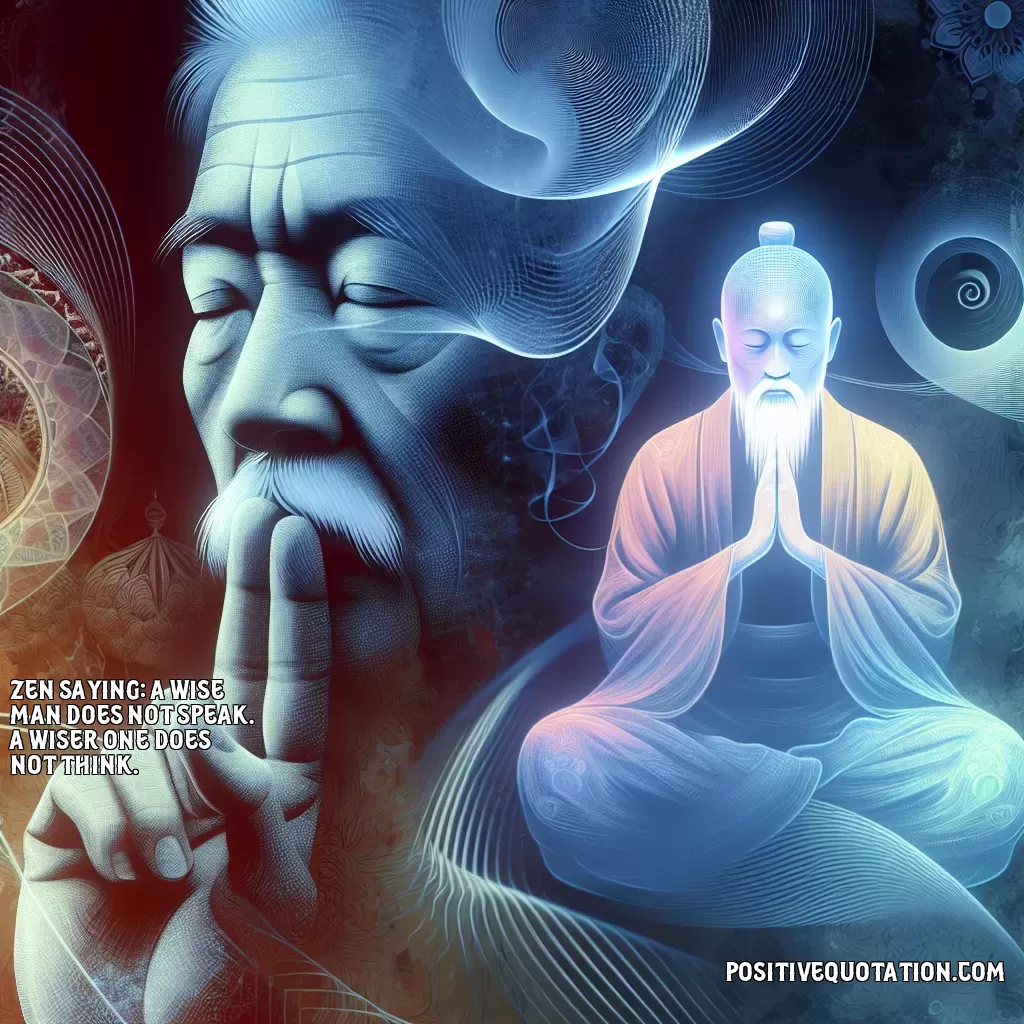
Zen Saying: A wise man does not speak. A wiser one does not think.
Author: Lao Tzu
👁️ 14 views
The Zen saying, "A wise man does not speak. A wiser one does not think," delves into the profound interplay between wisdom, thought, and communication. At first glance, it may seem paradoxical, as both speaking and thinking are typically associated with intelligence and sagacity. However, this saying is nested deeply in Zen philosophy, which often challenges conventional views to usher in greater understanding and enlightenment. The phrase "a wise man does not speak" echoes the Zen value of silence and mindful observation. In many instances, wisdom transcends verbal articulation. A wise person understands that words, while important, can be limiting and may not capture the full essence of the truth. Silence, therefore, becomes a powerful tool, allowing for deeper understanding through introspection and attentive listening. By not speaking, the wise demonstrate an appreciation for the complexities of life that cannot be easily conveyed with words. Meanwhile, the idea that "a wiser one does not think" suggests an even deeper level of enlightenment. Within the context of Zen, thinking is often associated with the discursive mind—a mind that categorizes, analyzes, and often overcomplicates reality. Zen seeks to cultivate a state of "no-mind" or "mushin," where one operates with pure awareness and spontaneity unfettered by the limitations of analytical thought. The wiser individual, therefore, embodies a state of being where intuition and present-moment awareness guide actions instead of premeditated thought. In essence, this Zen saying encourages a movement beyond intellectualization towards a more profound experiential understanding of reality—a state of being where presence, intuition, and silent awareness reign supreme. The ultimate wisdom lies not in the clouds of thought or the multitude of spoken words, but in the pure, unfiltered experience of life itself.
Quote By: Lao Tzu
Lao Tzu, an ancient Chinese philosopher and writer, is best known as the founder of Taoism and the author of the "Tao Te Ching," a foundational text that expounds on the principles of living in harmony with the Tao, or the Way. Traditionally believed to have lived in the 6th century BCE, his teachings emphasize simplicity, humility, and compassion, influencing not only Chinese philosophy and religion but also various aspects of art, politics, and culture throughout history. His enigmatic life and wisdom have made him a pivotal figure in Eastern thought.
Bio added on: 2025-02-15 03:30:42